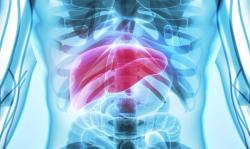
OR WAIT null SECS
CMAB008 Demonstrates Equivalence to Infliximab for Rheumatoid Arthritis
Phase 3 data show non-inferior efficacy of infliximab biosimilar CMAB008, which was well-tolerated with similar safety to its reference product.
In a recent phase 3 study, CMAB008 demonstrated non-inferior efficacy to innovator infliximab (Remicade), a monoclonal antibody used for the treatment of multiple autoimmune diseases, in patients with rheumatoid arthritis who were taking methotrexate.1
As a biosimilar of infliximab, CMAB008 has the same therapeutic indications and mechanism of action. This study aimed to evaluate the efficacy and safety of CMAB008 as compared with its reference product.
The equivalence was observed in both the full analysis population and per-protocol sets. CMAB008 exhibited similar early and lasting therapeutic effects and was well-tolerated with comparable safety.
According to the study, these findings offer essential guidance in establishing the interchangeability of biosimilars with reference products.
Assessing Biosimilars and Reference Products
Hua Ye, Rheumatology Department, Peking University People's Hospital, and a team of investigators conducted the randomized, double-blinded, parallel, positive control design, multicenter study with a stable dose of methotrexate.
A total of 384 patients were enrolled and randomly assigned to receive 3 mg/kg of CMAB008 or infliximab intravenously at weeks 0, 2, 6, 14, 22, and 30, with a ratio of 1:1. The primary efficacy endpoint was American College of Rheumatology 20% improvement criteria (ACR20) response rate after 30 weeks of treatment.
To establish the non-inferiority of CMAB008, the lower limit of the one-sided 97.5% confidence interval (CI) for the difference had to achieve more than - 15%. For equivalence to be established, the drug had to show the 2-sided 95% CI was within ± 15% in an exploratory equivalence analysis.
Secondary endpoints included other efficacy assessment parameters, as well as immunogenicity, safety, and pharmacokinetics.
Equivalence: CMAB008 and Infliximab
Investigators reported the primary outcome of ACR20 was reached by 110 (57.6%) of the 191 patients in the CMAB008 group, and 120 (62.2%) of the 193 patients in the infliximab group at week 30.
When examining the ratios of subjects achieving ACR20 between the study groups, investigators stated that no significant differences were seen at weeks 2, 6, 14, or 22 in either the full analysis set or the per-protocol set.
The analysis revealed a -4.6% difference in response rate with the lower limit of the one-sided 97.5% CI -14.29%. Because the difference didn’t fall below the limit of the non-inferiority margin of - 15%, CMAB008 was deemed non-inferior to infliximab.
No significant differences of ACR20 and ACR50 were identified between the CMAB008 group and the infliximab group for any evaluation point throughout the study.
Furthermore, the biosimilar’s equivalence was also demonstrated across the full analysis set (difference - 4.6%, 95% CI - 14.29% to 5.12%), and the per-protocol set (difference - 3.3%, 95% CI - 13.18% to 6.62%). Overall, the efficacy, safety, immunogenicity, and pharmacokinetics are highly similar between CMAB008 and innovator infliximab, according to the findings.
“The development of biosimilars like CMAB008 provides a tremendous benefit to the large patient population in China with autoimmune and rheumatic diseases, especially inflammatory bowel or RA diseases, whose medical needs are hindered by the high prices of originator drugs,” investigators wrote. “CMAB008 will lead to significant annual cost savings in the treatment of these chronic diseases.”
References:
- Ye H, Liu S, Xu J, et al. Efficacy and Safety of CMAB008 Compared with Innovator Infliximab in Patients with Moderate-to-Severe Rheumatoid Arthritis Receiving Concomitant Methotrexate: A Randomized, Double-blind, Multi-center, Phase III Non-inferiority Study [published online ahead of print, 2023 Mar 25]. Rheumatol Ther. 2023;10.1007/s40744-023-00544-2. doi:10.1007/s40744-023-00544-2


